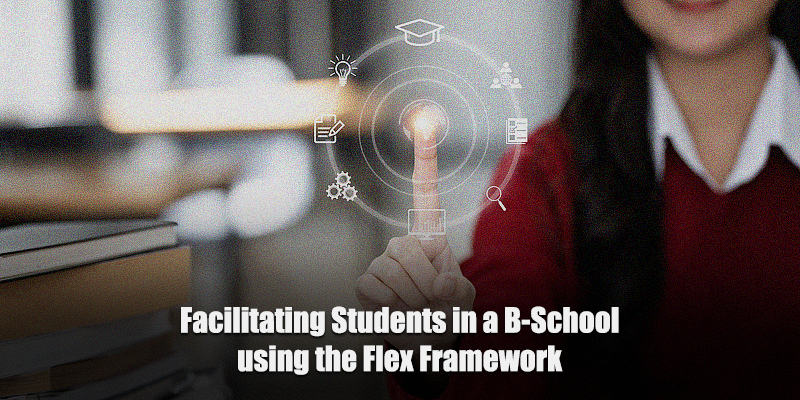Editor’s Note
Dr. Kavita Shastri teaches Human Resource Management and Organizational Behavior at Globsyn Business School – one of the best B-Schools in Kolkata. Dr. Shastri has more than 27 years of industry experience and around twenty-five years of teaching experience including academic administration. Ranking second in order of merit in her MBA, Dr. Shastri had the opportunity of teaching at prominent Business Schools of Calcutta. Besides HR specialization papers she also taught soft skills and has written many papers published in peer reviewed journals. She has written a book on Human Resource Management and another on Organizational Behavior too. In her last stint as Registrar of a College affiliated to University of Calcutta she also mentored students and conducted MDPs/Consultancy assignments in addition to routine teaching and administrative functions. Dr. Shastri is a Life Member of NIPM and National HRD Network.
It has been felt that the last few years have educated us to deal with stress and problems in a resilient manner, especially after the outbreak of the pandemic. This elasticity has made us perform better in the classroom, at the workplace, and in life. As a faculty it becomes challenging for us to introduce space and flexibility in our course outlines. The academic curriculum is a rigid framework to say the least, so introducing new changes and updating it is an uphill task.
The main focus of a Business School is on imparting learning to the students in conducive surroundings where they learn discipline, decorum and decency. In addition, there are other extra-curricular activities which aim at the holistic development of the student who will become a well accomplished management professional in the coming trying times.
At Globsyn Business School (GBS) we have devised an experiential learning framework which lays weightage on “Beyond Education” a vertical seamlessly inbuilt in the curriculum which focuses on learning by doing. Teaching is carried out by faculty in the area of mindfulness and spiritual awareness to make the students better human beings. The present day education mainly focuses on a rank based system in our country which is at times driven by grudge/negative feelings towards peers. Sometimes the over-ambitious parents who indulge in ‘helicopter parenting’ are also to be blamed.
Dr. Trish Berg, an Associate Professor of Management at Heidelberg University Tiffin Ohio, has come up with a resilience framework called the FLEX Plan, where:
‘F’ stands for ‘Failure’ – Students should be made to understand that it is normal if sometimes they face disappointment in their lives as it is a part of life. There are good days and then there are bad days. So if the bad days outnumber the good days it is fine and this too shall pass. Taking failure as a challenge and learning from it and moving on are the best approach.
‘L’ stands for ‘Lean in’ – Sometimes the only thing a student needs is a shoulder to lean on or in other words someone whom they can go to during times of hardship. Someone who can listen to them in a non-judgemental way when they experience many emotions like anger, loss, sadness, embarrassment, frustration and confusion.
‘E’ stands for ‘Elect a Positive Response’ – It is important to choose a positive response during times of difficulty. Responding in a positive manner can go a long way in building bridges. Also students should be made to understand that it is quite normal to feel emotional at the workplace.
‘X’ stands for ‘X-Ray’ – An X-ray gives a clear picture of the human anatomy based on which the doctor takes an informed decision. One has to be transparent like an x ray while dealing with events, situations and people.
Faculty can use this useful tool to help students respond to change, stress and failure thereby becoming more resilient. This simple method teaches students to stretch their capabilities further so as to become acceptable to change and persevere when they face failure, a plateau or success.
In order to increase resilience one has to understand it. The concept should be discussed with students where they are explained terms like effort, self control, social intelligence, self determination, perseverance, resolve, tenacity, vision and optimism.
The need of the time is to ensure that faculty and students share a friendly relationship with utmost respect. When this is inculcated in a higher education Institution the students feel secured, have a sense of belongingness and trust in the system and they can approach their educators whenever they are in need of a one on one discussion, some sort of hand-holding, guidance on the projects they are carrying out, and therapy when they are burdened with mental health issues.
The Founder and Chairman of the B-School, Mr. Bikram Dasgupta pioneered the ‘Learning Beyond Education’ initiatives through Kalyani Youth Leadership Forum (KYLF). KYLF implements its community welfare projects under three verticals – Elderly Care, Differently-abled Care, and Channelizing Youth. The ‘Care for Society’ activities, done by the students of GBS under the Beyond Education vertical of KYLF, is recognized by AICTE as a ‘Best Practices’ nationally amongst approved institutions in India, and has been mentioned in AICTE’s Best Practices bulletin.
When the students are involved in various ‘Care for Society’ initiatives undertaken by the B-School, they are able to replicate and apply the theories studied in classrooms on a practical basis. By doing so, not only the students imbibe new skills and knowledge, but also they transform as well informed and better managers who are ready to face the challenges that life throws at them.

Dr. Kavita Shastri
Faculty – HRM and Organizational Behavior
Globsyn Business School


